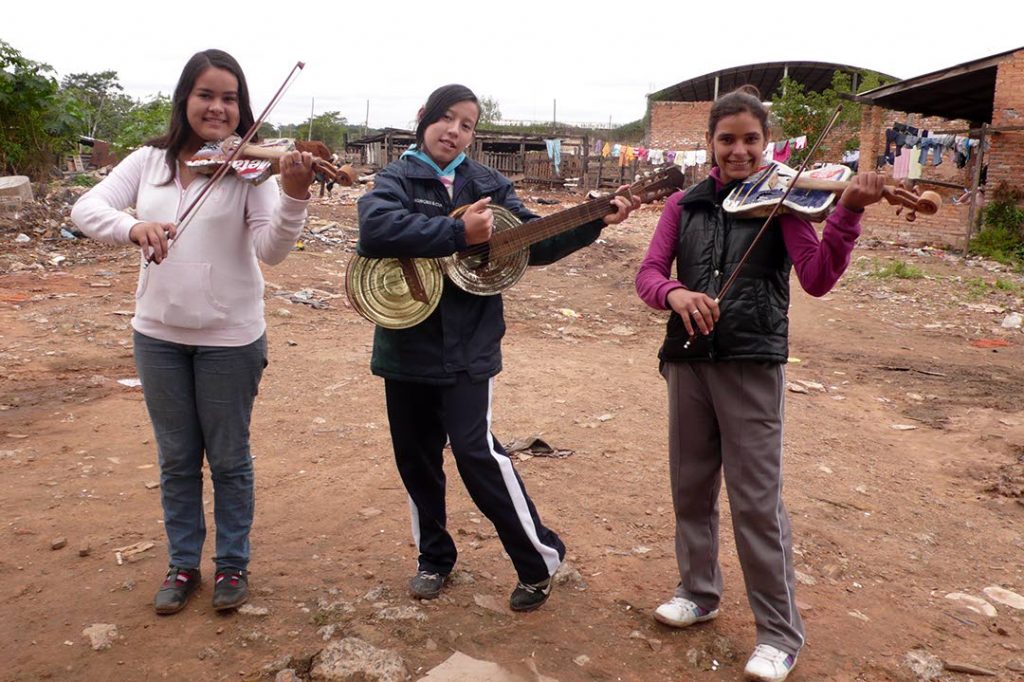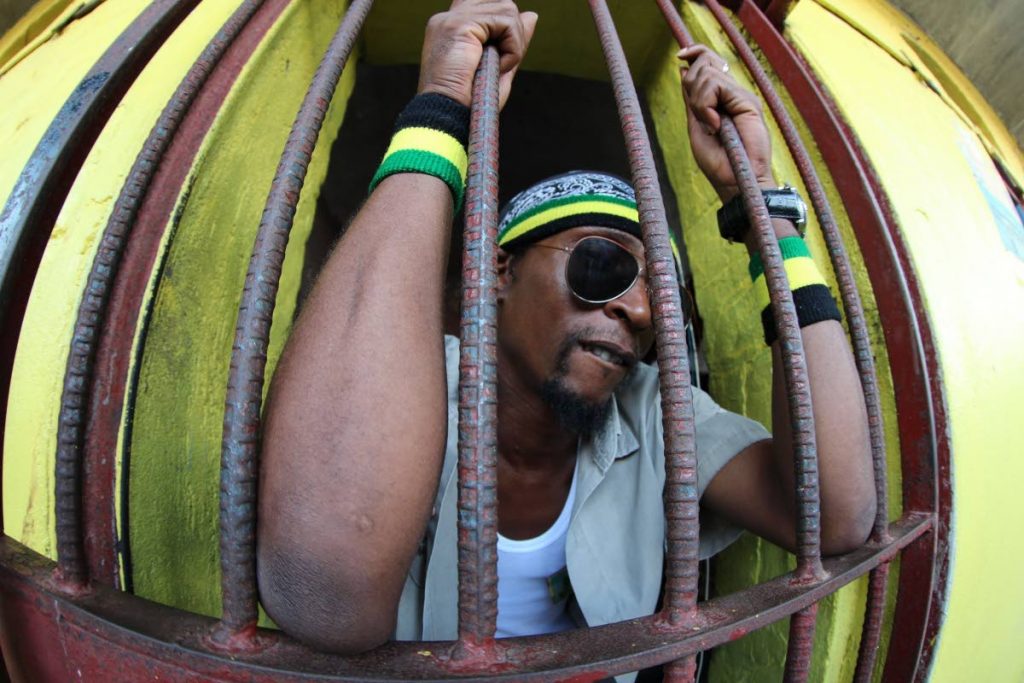Inspiring Green

MANY might look forward to Green Screen in October/November but, from this year, the festival’s followers can look forward to having more Green Screen during April and May.
The festival will run three feature films and four short films from tomorrow.
It will begin by showing its first feature documentary called Landfill Harmonic at San Fernando Hill from 7 pm. The feature documentary was directed by Graham Townsley and Brad Allgood. The 2015 film tells the story of “the Recycled Orchestra of Cateura, a Paraguayan musical group that plays instruments made entirely out of garbage. When their story goes viral, the orchestra is catapulted into the global spotlight.
Under the guidance of idealistic music director Favio Chavez, the orchestra must navigate a strange new world of arenas and sold-out concerts. However, when a natural disaster strikes their community, Favio must find a way to keep the orchestra intact and provide a source of hope for the town. The film is a testimony to the transformative power of music and the resilience of the human spirit,” according to www.landfillharmonic.com.

The other two films being featured are Songs of Redemption (2013) and Angel Azul (2014). Songs of Redemption is being shown at April 19 at Grundlos Kollektiv, 11 Cipriani Boulevard, Port of Spain, from 6.30 pm. Angel Azul, which closes the series, is showing on May 4 at 6 Scott Street, St Clair from 7 pm.

Craver Bacchus Green Screen’s founder and director when asked if there was a reduction in the number of days the festival was being run said, “There isn’t a reduction. We usually have the festival in October/November and we might run between seven and nine days but what we’ve decided to do from this year, going forward, is to split the festival. So we have three or four days in April and May and then in October/November have another four maybe five days.
The theme for the April/May series is The Art of Change and is looking at where sustainability and creativity meet to solve problems. “All the films have a theme of people using creativity, whether it is art or music to actually solve some sort of social or environmental problem,” he said.
In June, Bacchus said Green Screen will launch a short film competition that will feed content into the festival in October/November. He added that October/November activities will focus more on community screenings while also continuing with its high school screenings which it has done for the last seven years. Workshops and development activities would also be focused on in November.
While Bacchus admitted funding has been difficult for the last two years, funding for this particular series, he added, has not been difficult.
“The last two years have been particularly difficult since 2015 and 2016. I would say that funding is not looking terrible. It could always be better. We have one agency on board as a sponsor this year which is SWMCOL (Trinidad and Tobago Solid Waste Management Company). They have come on board very early. It is still April and we don’t get commitments for the November festival until June/July. We are quite lucky SWMCOL is on board this year. There is interest but interest needs to be converted into dollars,” he said.
But it was still too early to tell whether this year’s funding is good or bad, Bacchus said.
When it comes to environmental issues Bacchus believes corporate TT “does not really value the creative output of the country” nor its environmental product. Environmental issues was “just not something that is made to be important,” he said.
Green Screen began in 2011 and grew out of Bacchus’ love for film and the environment. He said of its start, “I went to film school in the UK a number of years ago and the issues of climate change in 2007/2008 was a major point of discussion in the news...It was something that was very high on Europe’s national agenda. I left Europe and came back to TT and no one was talking about climate change. It was like it did not exist.


Comments
"Inspiring Green"